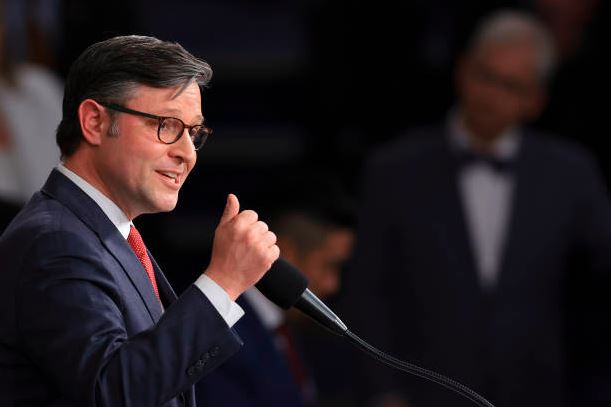The recent election of Mike Johnson as House speaker has raised alarm bells among those who fear that this push could quickly plunge the nation into a constitutional crisis, according to a report by Politico.
Mike Johnson, a Republican from Louisiana, has never publicly endorsed the never-used Article V convention during his tenure in Congress. Still, he was pivotal in persuading his state to become the eighth to call for such a convention. The “Convention of the States” movement, composed of conservatives who sought constitutional amendments, was ecstatic when Johnson assumed the role of House speaker.
Tim Barton, the head of the Wallbuilders organization, which promotes the idea that the founders were evangelical Christian conservatives, expressed his support for Johnson, stating, “This is the kind of guy that we’ve been praying for to be in that position.”
Johnson’s advocacy for an Article V convention dates back to 2016 as a state legislator. At that time, he vocally supported a petition asking Congress to convene such a convention. He believed it was a “measure of last resort” to rein in a government that had exceeded the founders’ intentions.
“I came to this conclusion myself reluctantly, but I’m there,” Johnson said in 2016. “I think we have to do it.”
Since arriving in Washington, Johnson has remained tight-lipped about this topic. However, he recently took action by convening the House Judiciary Subcommittee on the Constitution, called for a hearing and Limited Government.
To amend the Constitution, there are two paths, and only one has been used in US history. The conventional path requires two-thirds of Congress to approve a potential amendment, followed by three-fourths of the states agreeing before it becomes part of the Constitution.
A Debate Shaping the Future of the US Constitution

Article V, however, outlines another path—a constitutional convention where multiple amendments can be debated if two-thirds of states petition Congress. There’s no limit on the changes that can be proposed or how they would be ratified, but three-fourths of states would still need to approve for the changes to become law.
Nineteen states have submitted petitions supporting the Convention of States (COSA), more than halfway to the 34 states required to trigger an Article V convention. However, Johnson’s office downplayed his interest in the topic, stating that the Chairman should not endorse subcommittee hearings.
Critics of the COSA movement argue that it exploits ambiguities in Article V by insisting that state legislatures, often more conservative than the general public, would select delegates. Each state would have only one representative, giving equal voting power to states regardless of their population.
Stephen Spaulding, vice president of Common Cause, expressed concern about the worst-case scenario, stating that an Article V convention could put all constitutional and civil rights up for debate.
The mainstream legal consensus is that such a convention could effectively rewrite the US Constitution and restructure the government and Bill of Rights. Civil rights watchdogs have warned that this is precisely what the COSA movement intends to do.
A legal professor and former Wisconsin senator, Russ Feingold, raised alarms about Johnson’s support for the Convention of States movement, stating that it could risk catapulting the country into a constitutional crisis.
Mike Johnson’s election as House speaker has brought to the forefront a debate that could have profound implications for the future of the US Constitution and the nation’s governance.


Comments are closed.